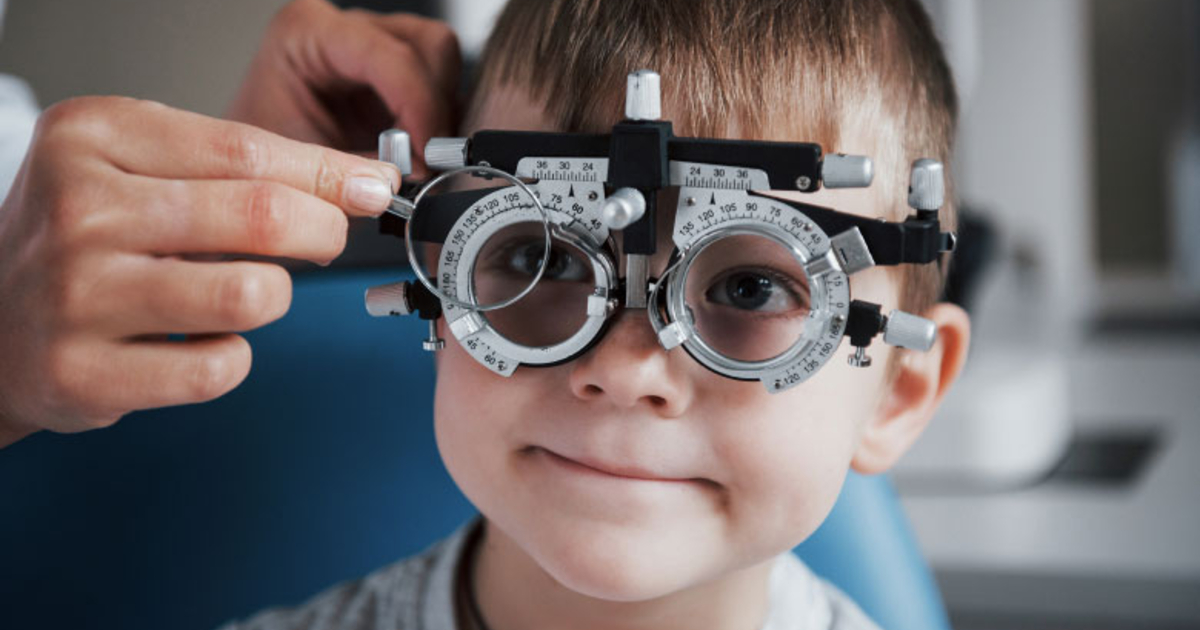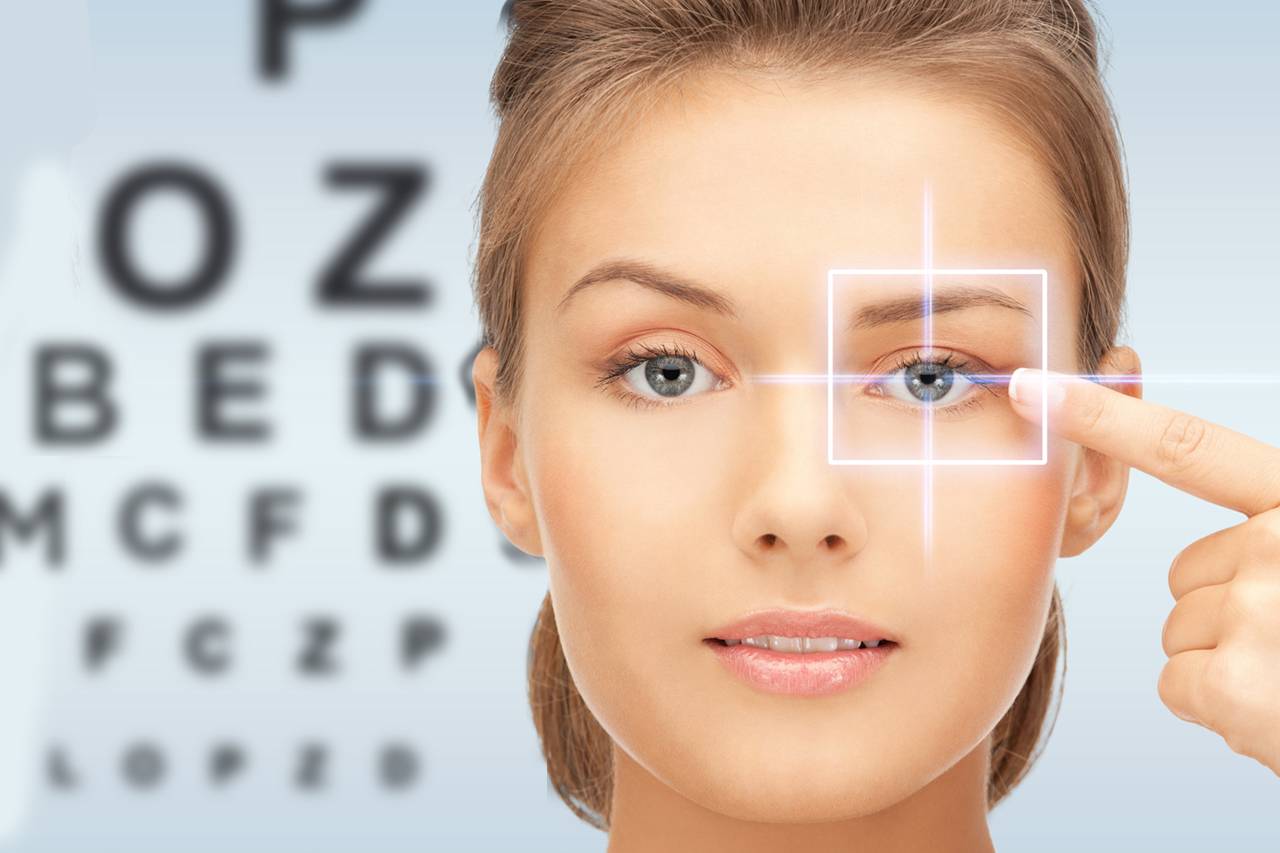Eye Doctor Near Me: Comprehensive Eye Care Solutions
Eye Doctor Near Me: Comprehensive Eye Care Solutions
Blog Article
The Importance of Normal Eye Exams: Insights From an Experienced Optometrist
Regular eye examinations function as a vital element of healthcare that extends beyond plain vision correction. A knowledgeable eye physician can provide understandings into how these assessments not only detect common eye problems but likewise disclose underlying wellness problems that might otherwise go unnoticed. The silent development of diseases such as glaucoma and macular degeneration underscores the need of early detection. Understanding the frequency and importance of these evaluations can inevitably influence one's long-term wellness trajectory, raising the concern of how usually people need to prioritize their eye health and wellness in the context of total wellness.
Advantages of Routine Eye Examinations
Although many individuals might ignore the importance of normal eye tests, these evaluations play a crucial role in maintaining total health and wellness and health. Normal eye evaluations offer not only to evaluate vision however also to detect early signs of systemic health and wellness problems, consisting of diabetic issues and hypertension. By identifying these problems at their inception, people can obtain timely treatments, substantially enhancing lasting results.
In addition, eye exams can assist in checking existing wellness issues, making certain that any type of changes in vision or eye health are immediately resolved (optometrist). The assessments permit personalized recommendations regarding glasses, way of life modifications, and protective measures versus potential eye strain or damage
Beyond physical wellness, the advantages of routine eye examinations expand to enhancing high quality of life. Ultimately, focusing on eye tests fosters a positive approach to wellness monitoring, empowering people to take charge of their well-being.
Common Eye Issues Detected
Regular eye examinations are crucial in identifying a selection of usual eye conditions that can substantially affect vision and overall health and wellness. Among one of the most prevalent conditions determined throughout these assessments are refractive mistakes, consisting of nearsightedness (nearsightedness), hyperopia (farsightedness), and astigmatism. These conditions commonly show up as obscured vision and can be easily remedied with prescription glasses or get in touch with lenses.
An additional typical concern is glaucoma, a team of eye diseases that harm the optic nerve, commonly connected to raised intraocular pressure. Early detection is vital as it can prevent irreparable vision loss.
Age-related macular degeneration (AMD) is an additional considerable problem that affects central vision, especially in people over 50. Finally, diabetic retinopathy, a problem of diabetic issues, can bring about extreme vision disability otherwise checked regularly. Through thorough eye examinations, these conditions can be determined early, enabling timely monitoring and treatment to maintain vision and improve top quality of life.
Relevance of Early Detection
Very early detection of eye conditions plays a crucial duty in maintaining vision and avoiding significant wellness difficulties. Many eye conditions, such as glaucoma, diabetic person retinopathy, and age-related macular deterioration, can progress quietly without recognizable symptoms in their early stages. By the time signs show up, irreversible damage might have i loved this happened, resulting in long-term vision loss.
Regular eye tests facilitate very early diagnosis, permitting prompt treatment and treatment. For example, treating elevated intraocular stress can prevent the onset of glaucoma, while handling blood sugar level levels can substantially minimize the risk of diabetic person retinopathy. Furthermore, conditions like cataracts can be efficiently taken care of with surgical intervention when recognized early.

Just How Usually Should You Check Out?
Determining the regularity of eye exams is essential for preserving optimal eye wellness and vision. The general referral for adults is to have a detailed eye exam each to 2 years, depending on specific danger variables and age. For people matured 18 to 60, a test every two years is usually sufficient if no vision troubles are existing. Nevertheless, those over 60 should think about annual examinations, as the threat of age-related conditions increases dramatically.
Individuals with certain risk factors, such as a family history of eye illness, diabetes, or existing vision troubles, may require more frequent assessments. Youngsters ought to have their initial eye exam at six months of age, followed by extra exams at age 3 and prior to entering institution. Routine exams throughout childhood years are important as vision can alter quickly during developing years.
Eventually, the frequency of gos to ought to be tailored to every person's scenarios, including way of life, work dangers, and any pre-existing eye problems. Consulting with an eye care specialist can give tailored referrals, ensuring that your eye health and wellness is consistently monitored and maintained.
Tips for Your Eye Exam
Planning for your eye examination can enhance the effectiveness of the browse through and make certain a detailed examination of your eye wellness. To optimize your time with the eye physician, it is essential to gather pertinent details before your visit. Begin by compiling a checklist of any type of drugs you are presently taking, consisting of over-the-counter medications and supplements, as these can affect eye health.
Furthermore, document any type of symptoms you have experienced, such as blurred vision, discomfort, or headaches. This info will reference aid your eye doctor in diagnosing prospective concerns. If you wear glasses or call lenses, bring them along, even if you don't use them on a regular basis. This will assist the physician evaluate any modifications in your vision.
It is likewise advantageous to have a household background of eye problems available, as genetic elements can add to your eye health. Lastly, take into consideration scheduling your exam temporarily when you are much less hurried, enabling you to ask inquiries and review your issues extensively. By preparing adequately, you can try here you make certain that your eye examination is effective and that your ophthalmologist has all the needed info to give the ideal care possible.

Conclusion
Normal eye exams play an essential function in preserving both vision and general wellness. Ultimately, focusing on extensive eye analyses contributes substantially to the conservation of vision and the improvement of top quality of life, underscoring the requirement of routine eye care in precautionary health care approaches.
Normal eye examinations are important in discovering a range of common eye problems that can considerably influence vision and overall wellness.Establishing the regularity of eye tests is essential for keeping optimal eye wellness and vision.Preparing for your eye test can boost the performance of the check out and make certain a comprehensive analysis of your eye wellness (optometrist). By preparing adequately, you make certain that your eye exam is efficient and that your eye medical professional has all the required info to offer the finest treatment feasible
Eventually, prioritizing extensive eye analyses contributes substantially to the conservation of vision and the improvement of top quality of life, underlining the requirement of routine eye treatment in precautionary healthcare approaches.
Report this page